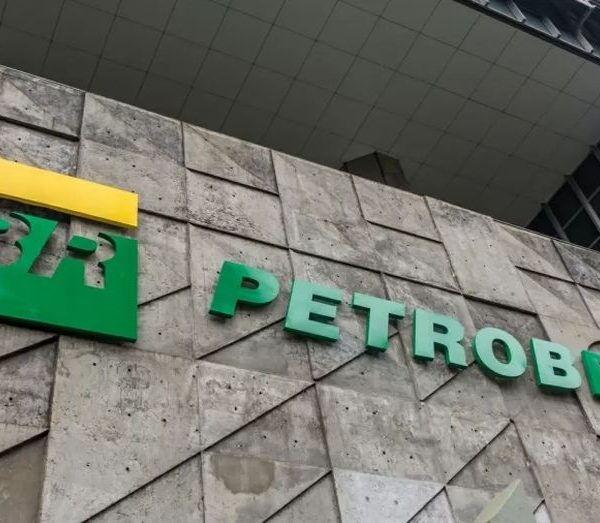
Raphael Machado
Much of the contemporary environmental agenda merely serves to mask the project of private appropriation of "natural frontiers" by transnational megacorporations.
Once again, Ibama (Brazilian Institute of Environment and Renewable Natural Resources) - the main environmental regulatory body - has denied Petrobras' request to explore oil in the equatorial margin, specifically in the Amazon Basin.This is not the first conflict between Ibama and Petrobras in efforts to explore oil in the equatorial margin, a region suspected to hold 14 billion barrels of oil, surpassing both the pre-salt reserves and the proven reserves in the Gulf of Mexico.
These areas were auctioned in 2013 to a consortium involving the British BP and the French Total, the main actor in the project. However, between 2013 and 2018, Ibama denied the environmental license necessary to begin exploration four times.
During this period, Greenpeace and other Western and Brazilian NGOs campaigned against the project, and unsurprisingly, the result was as expected. Initially, it wasn't shocking since foreign oil companies were attempting to explore Brazilian oil.
Thus, when ANP (National Agency of Petroleum) allowed Petrobras to take over Total's operations in the equatorial margin, many believed the issue was resolved, and that Brazil would soon unlock its potential as an oil power.
After all, it would now be an issue between Ibama (a government agency) evaluating a license for Petrobras (a government company). Wouldn't it be easier to obtain the license now that the issue was internal?
Wishful thinking.
In October 2021, still under Bolsonaro's administration, Petrobras submitted the licensing request to Ibama, including documents previously requested from Total.
And the license was denied.
The denial took over a year, claiming that the area was sensitive and that Petrobras would need to demonstrate the project's safety and its lack of environmental risk. The decision was signed by Ibama's president, Rodrigo Agostinho, who took office under Lula's new administration upon the recommendation of Environment Minister Marina Silva.
Ibama's president apparently shows no interest in the fact that developing the equatorial margin would significantly boost the economy in northern states, nor that Petrobras had already deployed exploration equipment to the area, or that the company (Brazil's most important) had already committed to investing in the equatorial margin with ANP under penalty of fines.
Despite Petrobras' persistence in requesting the environmental license, Ibama continues to deny it.
To understand the gravity of the situation, some analysts speculate that Brazil currently has oil reserves (from already exploited fields) for about 15 more years. And when these reserves run out? Either Brazil explores its untapped basins or begins importing oil.
Northern Brazil, including states like Amapá and Pará, has historically faced high poverty levels and a lack of infrastructure. Large projects like oil and gas exploration could inject billions into the local economy, creating direct and indirect jobs and improving the population's quality of life. For example, oil exploration in the Amazon Delta is seen as an opportunity to stimulate regional economic growth, providing resources for sectors like healthcare, education, and basic infrastructure. By blocking these projects, Ibama not only hinders local economic progress but perpetuates economic dependency and stagnation, where people continue to rely on low-value-added activities with minimal economic sustainability.
By contrast, just look at Guyana's recent history. Since starting its equatorial margin exploration in 2019, the country saw its GDP grow by 62% in 2022, with poverty rates falling from 60% to 40%, and it now has the highest GDP per capita in the region. In fact, according to IMF projections, Guyana will have the highest per capita GDP globally by 2028.
While Guyana enjoys enormous growth, Brazil, by tying its own hands, puts itself in a vulnerable position to international oil price fluctuations, moving further away from self-sufficiency in the sector. This also affects the electoral landscape, as gasoline prices have been a major concern for workers for years.
Now, how can Ibama be so powerful as to challenge Petrobras, northern governors, countless deputies and senators, and various other institutions and political figures?
The picture may become clearer by looking at who Lula placed in charge of Ibama on the recommendation of Minister Marina Silva.
Ibama President Rodrigo Agostinho has an interesting background. In his youth, he trained in the Rockefeller Foundation's "International Program for Environmental Leaders" and was a scholar at Imperial College London. Having held several other positions on environmental boards and committees, he was also the executive manager of the Arapyaú Institute and leads RAPS (Network of Political Action for Sustainability) Brazil.
Both the Arapyaú Institute and RAPS were founded by the same man, billionaire Guilherme Leal from the cosmetics sector. These arms of the "Nonprofit Industrial Complex" work alongside the Open Society, the Wilson Center, WWF, the European Union, USAID, Bayer, the Bezos Earth Fund, Cargill, Klabin, Shell, and a series of other foundations, think tanks, companies, and NGOs - all engaged in preventing Brazil from using its Amazon resources to drive its development, ensure self-sufficiency, and lift its population out of poverty.
When investigating the financiers of the agendas of figures like Ibama's President, who will therefore shape the narrative against economic activities in the Amazon region, one comes closer to hidden interests masquerading as "environmental concern."
It's no surprise, really, that companies from the pharmaceutical, cosmetics, foreign oil, and other sectors are attempting to suspend Brazilian state sovereignty over the Amazon.
The reality is that much of the contemporary environmental agenda merely serves to mask the project of private appropriation of "natural frontiers" by transnational megacorporations. In the name of "nature preservation," they finance lobbyists and activists who block state action so that they can "manage" these spaces themselves.
This brings us, finally, to Brazil's current major issue: the infiltration of nearly all key institutions by agents linked to this international system of NGOs and foundations.